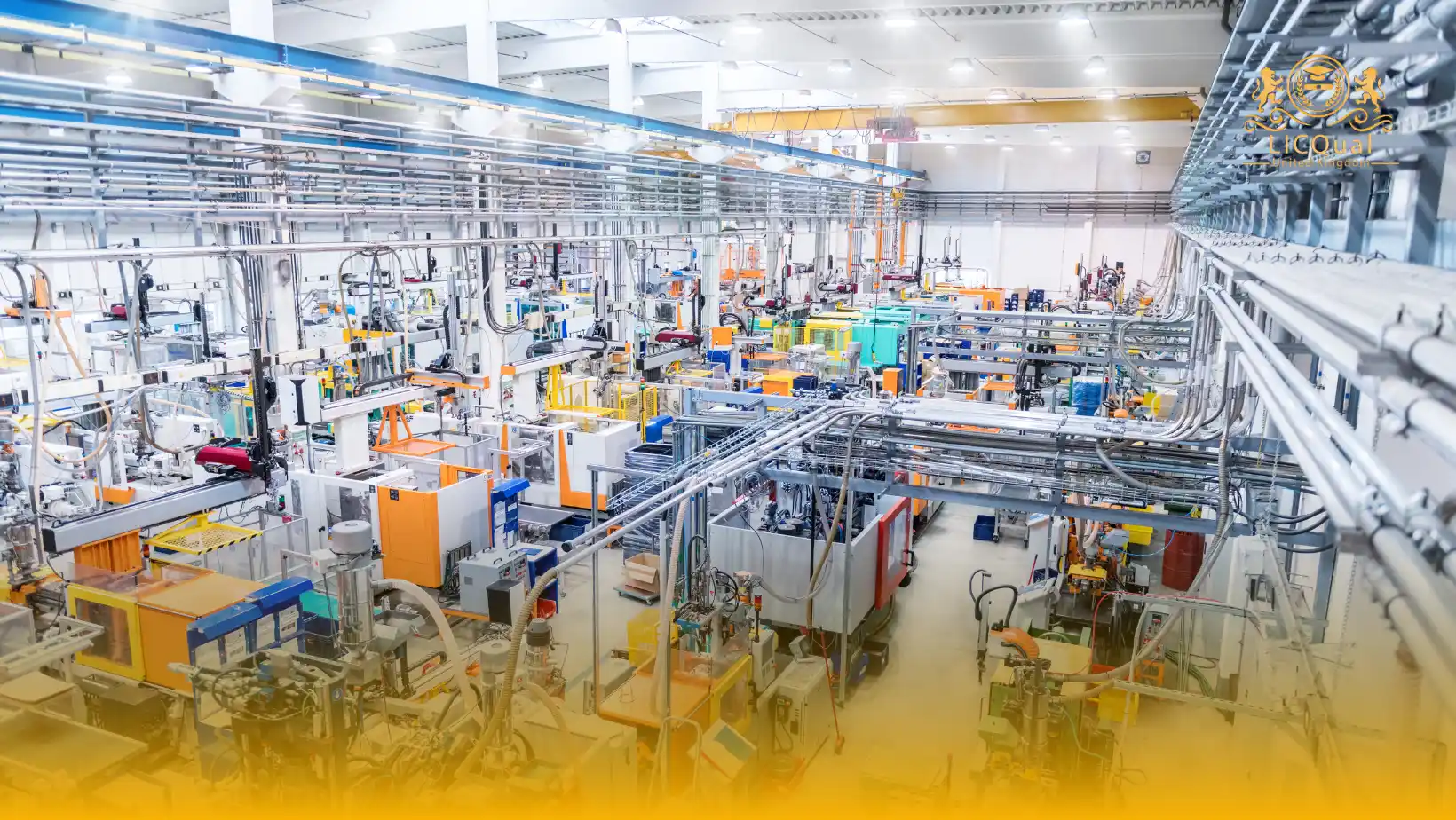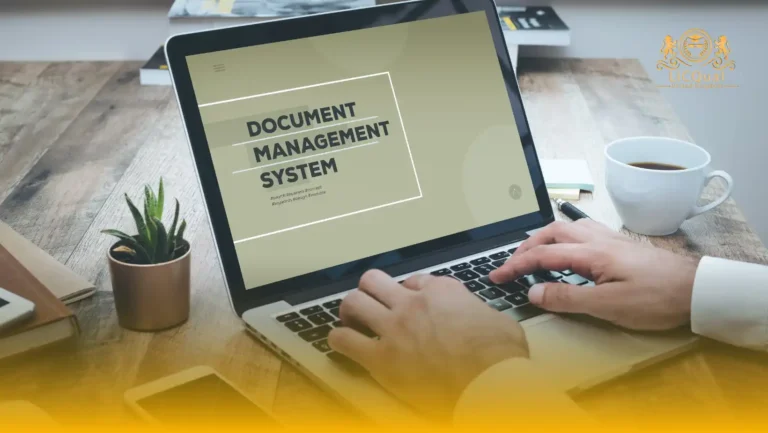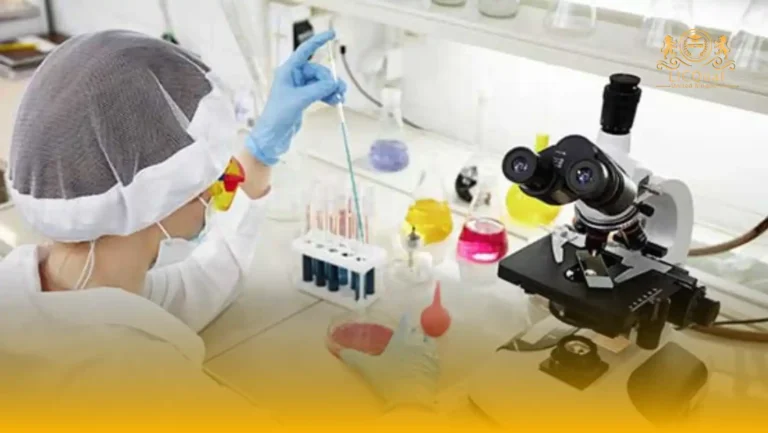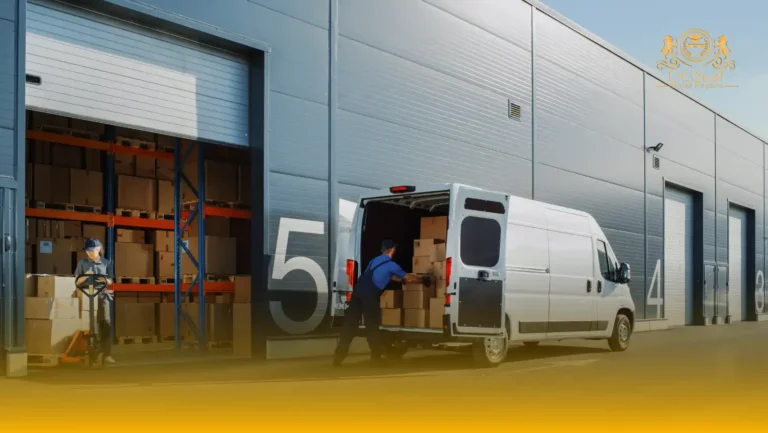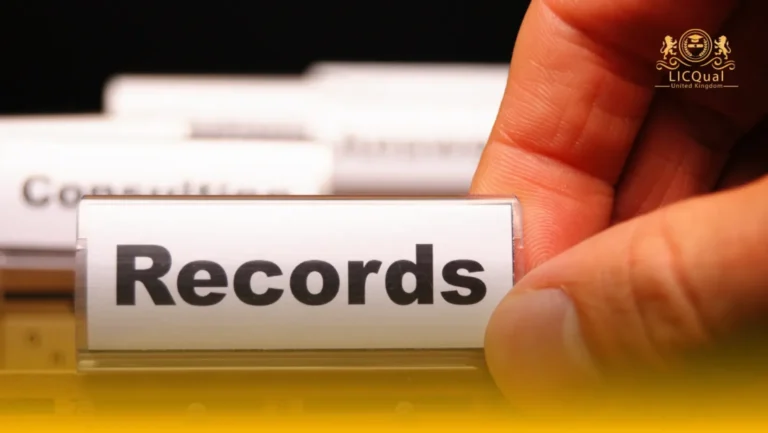The LICQual Level 1 Award in Future of Manufacturing Business is an internationally recognized qualification designed to introduce learners to the rapidly evolving landscape of modern manufacturing. As industries worldwide adopt smart technologies, automation, and data-driven practices, this course provides a foundational understanding of the innovations shaping the future of manufacturing. Tailored for beginners, students, and early-career professionals, this program helps participants grasp essential concepts like Industry 4.0, sustainable production, and digital transformation within manufacturing ecosystems.
This course is ideal for those seeking to explore how manufacturing businesses are adapting to global shifts in technology, customer expectations, and environmental responsibility. Through interactive learning, students will gain insights into how robotics, artificial intelligence (AI), the Internet of Things (IoT), and smart supply chains are redefining manufacturing operations. The LICQual Level 1 Award in Future of Manufacturing Business also explores global trends, including reshoring, decentralized production, and green manufacturing practices, making it relevant for learners across diverse industrial sectors.
As part of the learning journey, learners will be introduced to the key components that drive the future of manufacturing, such as digital twins, predictive maintenance, data analytics, and lean methodologies. The curriculum encourages a forward-thinking mindset, helping learners identify how emerging technologies can lead to increased productivity, reduced waste, and more agile manufacturing systems. The course is structured to provide a practical overview while remaining accessible to individuals with no prior background in engineering or manufacturing.
The LICQual Level 1 Award in Future of Manufacturing Business is especially beneficial for those aspiring to build a career in modern manufacturing or those working in traditional production roles who wish to upskill. By completing this course, learners can better understand how global manufacturers are staying competitive in a digitally connected world. The knowledge gained from this qualification lays the groundwork for further education in manufacturing technology, engineering, or business innovation.
With a strong focus on the future of manufacturing business, this qualification ensures that learners are well-equipped to participate in discussions about industrial advancement and sustainability. It opens the door to future academic pathways and employment opportunities in smart factories, supply chain optimization, or manufacturing consultancy. Whether you are a student, jobseeker, or current employee looking to stay ahead, the LICQual Level 1 Award in Future of Manufacturing Business provides an excellent starting point to explore the evolving world of manufacturing.
Course Overview
Qualification Title
LICQual Level 1 Award in Future of Manufacturing Business
Total Units
6
Total Credits
6
GLH
12
Qualification #
LICQ2200467
Qualification Specification
To enroll in the LICQual Level 1 Award in Future of Manufacturing Business applicants must meet the following criteria:
|
Qualification# |
Unit Title |
Credits |
GLH |
|---|---|---|---|
|
LICQ2200467-1 |
Introduction to the Manufacturing Sector |
1 |
2 |
|
LICQ2200467-2 |
Basic Health and Safety in Manufacturing |
1 |
2 |
|
LICQ2200467-3 |
Introduction to Manufacturing Processes |
1 |
2 |
|
LICQ2200467-4 |
Tools and Equipment in Manufacturing |
1 |
2 |
|
LICQ2200467-5 |
Basic Quality Assurance Principles |
1 |
2 |
|
LICQ2200467-6 |
Work Ethics and Teamwork in Manufacturing |
1 |
2 |
By the end of this course,applicants will be able to:
- Understand the Structure and Scope of the Manufacturing Sector
- Identify key segments of the manufacturing industry.
- Recognize the role of manufacturing in the global and local economy.
- Explain how emerging trends are shaping the future of manufacturing.
- Demonstrate Awareness of Basic Health and Safety Practices in Manufacturing
- Recognize common workplace hazards and safety signs.
- Follow basic safety procedures and use personal protective equipment (PPE) correctly.
- Understand the importance of maintaining a safe working environment.
- Describe Fundamental Manufacturing Processes
- Identify basic types of manufacturing processes such as assembling, molding, and machining.
- Explain how raw materials are transformed into finished products.
- Understand the concept of production workflows and process efficiency.
- Identify and Use Basic Tools and Equipment in Manufacturing
- Name and describe common manufacturing tools and equipment.
- Demonstrate safe and appropriate use of basic tools in a simulated or supervised environment.
- Understand the maintenance and storage of tools.
- Understand Basic Principles of Quality Assurance in Manufacturing
- Explain the importance of quality in manufacturing operations.
- Identify simple methods of quality control and inspection.
- Understand how quality assurance contributes to customer satisfaction and efficiency.
- Demonstrate Understanding of Work Ethics and Teamwork in Manufacturing Settings
- Describe the value of punctuality, responsibility, and professionalism in the workplace.
- Explain the importance of teamwork and effective communication in a manufacturing environment.
- Demonstrate basic collaborative skills for working effectively in teams.
The LICQual Level 1 Award in Future of Manufacturing Business is ideal for individuals looking to start a career in the manufacturing sector or gain foundational knowledge of modern business operations. Manufacturing Business is perfect for school leavers, career changers, and early professionals who want to understand emerging trends in production, technology, and industrial processes. Future of Manufacturing Business course also suits aspiring entrepreneurs, corporate trainees, and technology enthusiasts seeking practical insights into the future of manufacturing. With its beginner-friendly approach, learners can build essential skills and prepare for further qualifications in the industry.
1. Aspiring Manufacturing Professionals
- Individuals interested in starting a career in the manufacturing sector
- Learners aiming to understand modern production processes and industry trends
- People seeking foundational knowledge in manufacturing business practices
- Beginners who want to explore opportunities in industrial operations
- Students planning a future career in manufacturing, engineering, or operations
2. School Leavers and Early Career Learners
- Recent high school graduates looking for entry-level qualifications
- Individuals exploring practical career paths in manufacturing and business
- Students wanting a structured introduction to industrial and business concepts
- Young learners aiming to gain recognized certification for career progression
- Those seeking a stepping stone for Level 2 or Level 3 qualifications
3. Career Changers
- Professionals from other sectors wanting to enter the manufacturing industry
- Individuals looking to upskill in production, business, or industrial technology
- Workers seeking knowledge in emerging manufacturing trends and innovations
- Career changers aiming to gain globally recognized qualifications
- People wanting hands-on insights into modern industrial practices
4. Entrepreneurs and Small Business Aspirants
- Individuals planning to start small manufacturing or production businesses
- Learners interested in understanding business operations in manufacturing
- People seeking knowledge to improve efficiency and productivity in business
- Entrepreneurs aiming to leverage technology and innovation for business growth
- Those exploring sustainable and future-focused business practices
5. Corporate and Industry Trainees
- Employees seeking foundational training in manufacturing business processes
- Staff aiming to understand digital transformation in the manufacturing sector
- Learners preparing for internal promotions or role expansions
- Professionals wanting to implement industry best practices in their workplace
- Trainees who require practical knowledge of modern production and business trends
6. Technology Enthusiasts
- Individuals interested in digital tools and automation in manufacturing
- Learners keen on understanding smart factories, AI, and Industry 4.0 concepts
- People looking to explore the intersection of technology and business operations
- Tech-savvy learners aiming to stay ahead in industrial innovation
- Those interested in sustainable and future-ready manufacturing technologies
7. Students Seeking Academic Progression
- Learners planning to pursue higher-level manufacturing or business qualifications
- Individuals aiming for Level 2 or Level 3 awards in manufacturing or industrial studies
- Students interested in exploring global opportunities in industrial careers
- Learners looking to enhance employability in manufacturing and operations roles
- Those wanting a recognized entry-level certification to build a career foundation
Assessment and Verification
All units within this qualification are subject to internal assessment by the approved centre and external verification by LICQual. The qualification follows a criterion-referenced assessment approach, ensuring that learners meet all specified learning outcomes.
To achieve a ‘Pass’ in any unit, learners must provide valid, sufficient, and authentic evidence demonstrating their attainment of all learning outcomes and compliance with the prescribed assessment criteria. The Assessor is responsible for evaluating the evidence and determining whether the learner has successfully met the required standards.
Assessors must maintain a clear and comprehensive audit trail, documenting the basis for their assessment decisions to ensure transparency, consistency, and compliance with quality assurance requirements.

